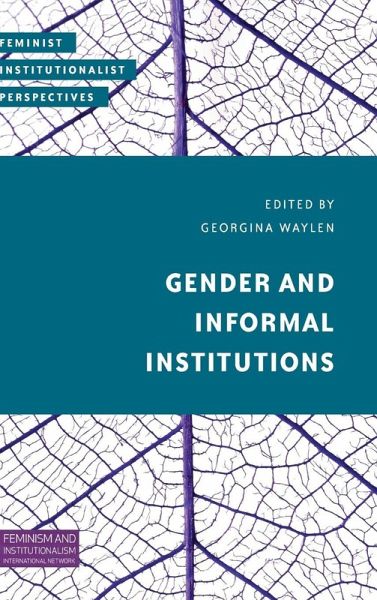
Gender and Informal Institutions

PAYBACK Punkte
74 °P sammeln!
The book takes up the challenges of gender equality in informal institutions though a feminist institutionalist lens.


Rechnungen
Bestellstatus
Retourenschein
Storno